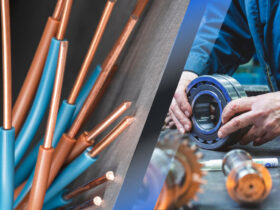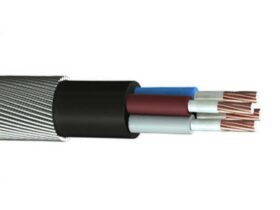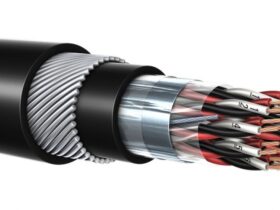Instrumentation cables are one of the most common kinds of cable basically design for all sorts of signal transfer single definition for what exactly instrumentation cable is would be very difficult.
This is because instrumentation cables can be used for just about any application involving the transmission of voice and data, meaning that they are used for an extremely broad range of equipment. They can also be used for the interconnection of electrical equipment and instruments.
These cables are being used for as many applications as they are, can be designed in all shapes and sizes. These can range from small cables with a small number of cores for handheld devices such as walkie talkies, to large multicore cables used in medical equipment such as MRI scanners.
In short, if you have a requirement of a cable for a piece of gear that needs the transmission of data or voice, then you’re possibly going to need an instrumentation cable.
Applications of Instrumentation cables:
• Instrumentation cables find application majorly in control and communication applications.
• Majorly these cables are used in process industries where a lot of systems are elaborate.
• Instrumentation cables are involved in process control, communication of analogy signals or digital signals and voice transmission, signalling in industrial and process control circuitry.
Industries that use instrumentation cables manufactured by instrumentation cable manufacturers
· Oil & Gas business for (Upstream, Midstream & Downstream)
· Power industries for (Generation, Transmission & Distribution)
· Auto manufacturing
· Machine Building
· Petrochemical Complex
· Mining Industry
· Manufacturing (Steel, Cement, Pulp & Paper)
· Food & Beverage
· Wastewater Treatment
· Intelligent Transport & Traffic Systems
· Wind Energy
Types of instrumentation cables supplied by instrumentation cables suppliers
• Instrument power supplies (above 50 V).
• High-level signals (between 6 and 50 V). This includes digital signals, alarm signals, and high-level analog signals (e.g., 4–20 mAdc).
• Low-level signals (below 5V). This generally includes thermocouples that compensate leads and leads elements of resistance.
How to choose the right type of cable as per your requirement?
Only signals of the identical type should be controlled within any one multicore cable. They should be separated into groups according to the signal level when installing cables above or below ground and segregated with positive spacing between the cables.
As a rule, low – level signals with the high – level signal cables in between should be installed furthest apart from instrument power supply cables.
Cables used for high – integrity systems such as emergency shutdown systems or data roads should be completely independent or positively separated from other cables.
Instrument cables should be functioned without electrical power cables and should also evade noise-making equipment such as motors as far as possible. Always make cable crossings at the right angles.
Qualities of a good instrumental cable supplier
• Provides better abrasion resistance cable quality
• The capability of all type of installation – outdoor/ indoor, direct buried
• Ready with the ample amount of supplies and verities as per the business requirement
• Deliver anywhere within the geography
• Having online connectivity for all the business dealing
• Flexibility in pricing policy
Instrumentation cables are multiple conductor cables that convey low energy electrical signals used for monitoring or controlling electrical power systems and their associated processes. The functions of measurement and control are vital in manufacturing and processing applications.
See Relemac industrial-certified cables for signal transmission communications instrumentation and control and electronics in harsh demanding environments.














Leave a Reply